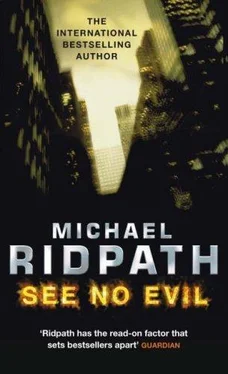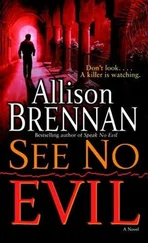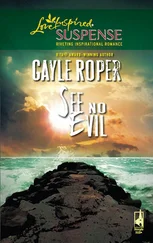‘Thank you, Benton,’ Calder said.
‘That’s OK. Just make sure Todd or his wife don’t tell Cornelius that I spoke with you. And I hope Todd recovers soon.’
Calder and Tarek watched Benton stride out of the dining room. ‘Did you get what you wanted?’ Tarek asked.
‘I asked the question. He answered it,’ Calder said.
‘Do you believe him?’
Calder glanced at his friend. ‘Don’t know. Do you?’
Tarek shrugged. ‘Actually, I’m not sure. But I think that’s the best answer you are going to get.’
‘Was Zyl News in trouble back in 1988?’ Calder asked. ‘This was all way before my time.’
‘And mine,’ said Tarek. ‘If you’ve got a moment we could talk to Cash Callaghan. I’m pretty sure he was selling junk bonds back then.’
The two years since Calder had left Bloomfield Weiss was long enough for him to feel a sense of nostalgia as he followed Tarek into the familiar dealing room on the second floor of their Broadgate offices. There were many faces he knew who smiled and nodded to him, but there were just as many he didn’t. Young, fresh-faced, intense-looking men and women, sucked into the Bloomfield Weiss machine to replace those that had been spat out or tempted away by six-figure guaranteed bonuses from other firms. As he caught glimpses of the screens crammed with rows and columns of figures, Calder couldn’t repress a surge of excitement, a tingle of curiosity. What was going up? What was going down? What was happening out there in the markets? And in here in the Bloomfield Weiss trading room? Who was making money, who was losing it, who was riding the big positions, who was sitting on the big losses? And the biggest question: was it really possible for him to walk away from all this for ever?
They threaded their way through the maze of desks, computer equipment, chairs and bodies to the Fixed Income sales desk and paused next to an overweight American in his fifties leaning back and talking. Talking fast.
‘OK, Josie, you’ve got close to five hundred million in asset-backeds, right?’ The man was in full spiel. ‘You switch those into five hundred million Treasuries. You give up yield but you get convexity, right? Oodles of convexity. The markets bounce the way you’re telling me they’re gonna and you got yourself a rocket-fuelled portfolio. I mean you’re going to the moon, Josie. Top-quartile performance, investment manager of the year, promotion, big bonus, new car, new Jimmy Choos. Think of the Jimmy Choos, Josie.’
Calder and Tarek could hear the female laughter on the other end of the line.
‘OK, you think about it,’ the man said. ‘But think fast. ’Cos if you think about it for a week, that’s not thinking, that’s sleeping, know what I mean?’
He put down the phone and turned to Calder. ‘Hey, Zero, my man! How are you doing?’ He leaped to his feet and held out his hand. Calder took it.
‘I’m very well, Mr Callaghan. What was all that about convexity?’
‘It’s Josie’s new word for the week. Every now and then your clients learn a new word and you gotta pay attention. She’s a nice kid, but I doubt she’s seen her first bond mature. You still out in the boonies playing with model airplanes?’
‘More or less.’
‘You getting him back to work for us, Tarek?’
‘I tried,’ Tarek said. ‘He’s a tough nut to crack.’
‘Come on, Zero. We need you here. We need a guy with balls.’ He looked contemptuously towards the parallel row of desks where the traders were seated. Cash Callaghan was a salesman, the most successful in Bloomfield Weiss’s London office. He had been around a long time, but he hadn’t lost any of his energy. Despite appearances, he was well known for his memory. Bonds might come and go, but Cash would remember them all, who issued them, who bought them, who sold them, what happened to them.
‘Actually, he wanted to ask you about one of our favourite junk-bond issuers,’ Tarek said. ‘Zyl News.’
‘Ah, yes. So is there something in the rumours they’re taking a run at The Times?’
‘I don’t know anything about that,’ Calder said. ‘I want to ask you about 1988.’
‘Hmm... 1988.’ Cash thought a moment. ‘I remember. The Herald takeover. Two hundred million dollar issue, thirteen and a half per cent coupon, maturity two thousand, boy was that difficult to get away. It was less than a year after the October ’87 crash and the junk market was just opening up again to good issuers. Zyl News was not a good issuer.’
‘What was the problem?’
‘There were rumours they were in trouble. Their cash flow was barely covering their interest costs. We’d backed Cornelius van Zyl all through the eighties. He bought all kinds of papers in the states — the Philadelphia Intelligencer was the biggest, but there were many more, including a couple of major metros in Indiana and Ohio. And he did a great job turning them around, cutting costs, jacking up advertising rates, that kind of thing. But he kept paying up to make these acquisitions and borrowing from the banks and the junk market to do it. It was all great as long as we could keep lending him the money to feed the machine. In ’86 he tried a start-up in the Los Angeles market against the LA Times — that was an expensive disaster. Then in October ’87 the stock market melted down and it looked like the junk-bond market was history. Guys like van Zyl were in big trouble. Without the junk market they couldn’t do any more deals, and without new deals they were left struggling to meet the interest payments on the old ones. The only way out of the bind was to buy a larger company and use its cash flow to service the debt. So the Herald acquisition was an important one. Make or break.’
‘Was anyone else interested in the Herald?’
‘Yeah. Evelyn Gill. No one had heard of him back then. He’d made his money in commodities and he owned a small magazine publisher. Then he suddenly decided he wanted to use his cash to buy a newspaper. It was his first deal. He ended up offering a higher price than Zyl News, but the Herald went to Zyl anyway. Gill was pissed. He and van Zyl have been big enemies ever since. Of course, Gill has bought a whole bunch of other titles since then, including the New York Globe and the Mercury .’
‘But you say it was difficult to get the Zyl deal away?’
‘Oh yeah. They had to jack the coupon up, I think they started at twelve per cent and had to raise it to thirteen and a half. I was worried about it, to be honest. You hate to sell something to your customers that’s gonna blow up in their face.’
‘So you didn’t sell any yourself?’
Cash grinned. ‘They doubled the sales credit, I had to rethink my priorities. I sold forty million in Europe. The guys in New York loved me.’
Calder rolled his eyes.
‘Hey!’ Cash said. ‘I’ve dug you out of a hole on more than one occasion.’
‘That’s true.’ Calder had made use of Cash’s sales skills to get rid of troublesome positions that the rest of the market didn’t want. Calder had had to put up with a certain amount of stick from him, but Cash had been able to sell the bonds. Cash was always able to sell the bonds. ‘How’s Zyl News been since then?’
‘Well, they did a good job. They turned the Herald around and met all their interest payments, and although they’ve done more deals — some regional papers in this country, a couple in Australia and Canada, some more in the US — they’ve learned their lesson. They’ve only got one bond issue outstanding at the moment and that’s trading well.’
‘Thanks, Cash.’
‘No problem,’ he said. ‘Now I’ve got to figure out what I’m gonna do with those five hundred million asset-backeds if Josie does sell them.’
Читать дальше












